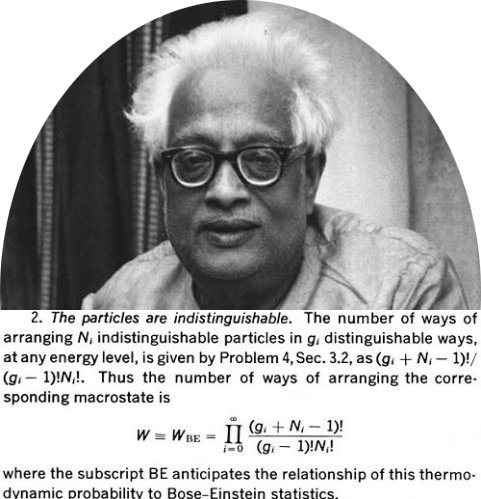SAHA INSTITUTE OF NUCLEAR PHYSICS
Department of Atomic Energy, Govt. of India
Bose - the Indian behind the Big Bang experiment
Wed, Sep 10 05:44 PM
London, Sep 10 (IANS) Of the three main past and present physicists behind the landmark proton-smashing experiment in Geneva Wednesday, one has a Nobel Prize, the other is waiting to find out if he has one, and the third never got one.
|
|
| The third man is the Bose of the Higgs-boson experiment - Satyendra Nath Bose. |
| It is Bose after whom the sub-atomic particle 'boson' is named - probably the only noun in the English language named after an Indian (and therefore never capitalised). |
| The $10 billion Large Hadron Collider experiment in Switzerland Wednesday could not have happened without Bose and Albert Einstein. |
| In 1924, Bose sent a paper to Einstein describing a statistical model that eventually led to the discovery of the Bose-Einstein condensate phenomenon. |
| The paper laid the basis for describing one of the two categories of the elementary particles that make up an atom - one was boson, and the other came to be known as fermion, after the Italian physicist Enrico Fermi. |
| Einstein had already won the Nobel in 1921 for services to theoretical physics and the discovery of the law of the photoelectric effect, and Fermi won it in 1938. |
| Decades later, in 1964, the British scientist Peter Higgs returned from a walk in the Scottish mountains to tell his colleagues that he had just experienced his 'one big idea,' which could hold a clue to how matter in the universe got its mass in the billionth of a second after the Big Bang. |
| Higgs eventually came up with his theory of the Higgs boson, a boson that gives mass to all other subatomic particles that happen to interact with it in a 'Higgs field'. The more they interact, the heavier they become. And the ones that don't interact don't gather mass. |
| The theory could not only throw further light on the creation of the universe, but also help explain the shape of it. |
| Wednesday's experiment at the European Centre for Nuclear Research (CERN) in Switzerland, where protons will be smashed against each other at great speed, will be the first attempt to actually observe the Higgs boson - nicknamed the 'God particle.' So far, it is the last undetected elementary particle, also called a fundamental particle, going by the standard theory of particle physics. |
| Higgs, who is professor emeritus at Edinburgh University, is now widely tipped to win the Nobel, particularly if the Higgs boson is detected. |
| The first Nobels for physics in the 21st century went jointly to three Americans - Eric Cornell, Carl Wieman and Wolfgang Ketterle. The won it for creating the 'condensate' - a new type of matter - that Bose and Einstein had postulated. |
| According to Bose's grandson Falguni Sarkar, six other physicists have won the Nobel for work in the area of Bose statistics. |
| However, for some reason, Satyendra Nath Bose himself never won the Nobel. |
| Sharon Ann Holgate, a British science writer and broadcaster who made an acclaimed radio documentary on Bose for the BBC some years ago, said she had no doubt the Indian deserved a Nobel. |
| 'I certainly do think he deserved the Nobel. When I was researching my documentary I was outraged that this man was so brilliant, yet so overlooked, perhaps because of institutionalised racism. No one gave a damn because he was an Indian,' she told IANS. |
| 'I was really angry, and wanted to make him a bit more widely known.' Holgate added. |
